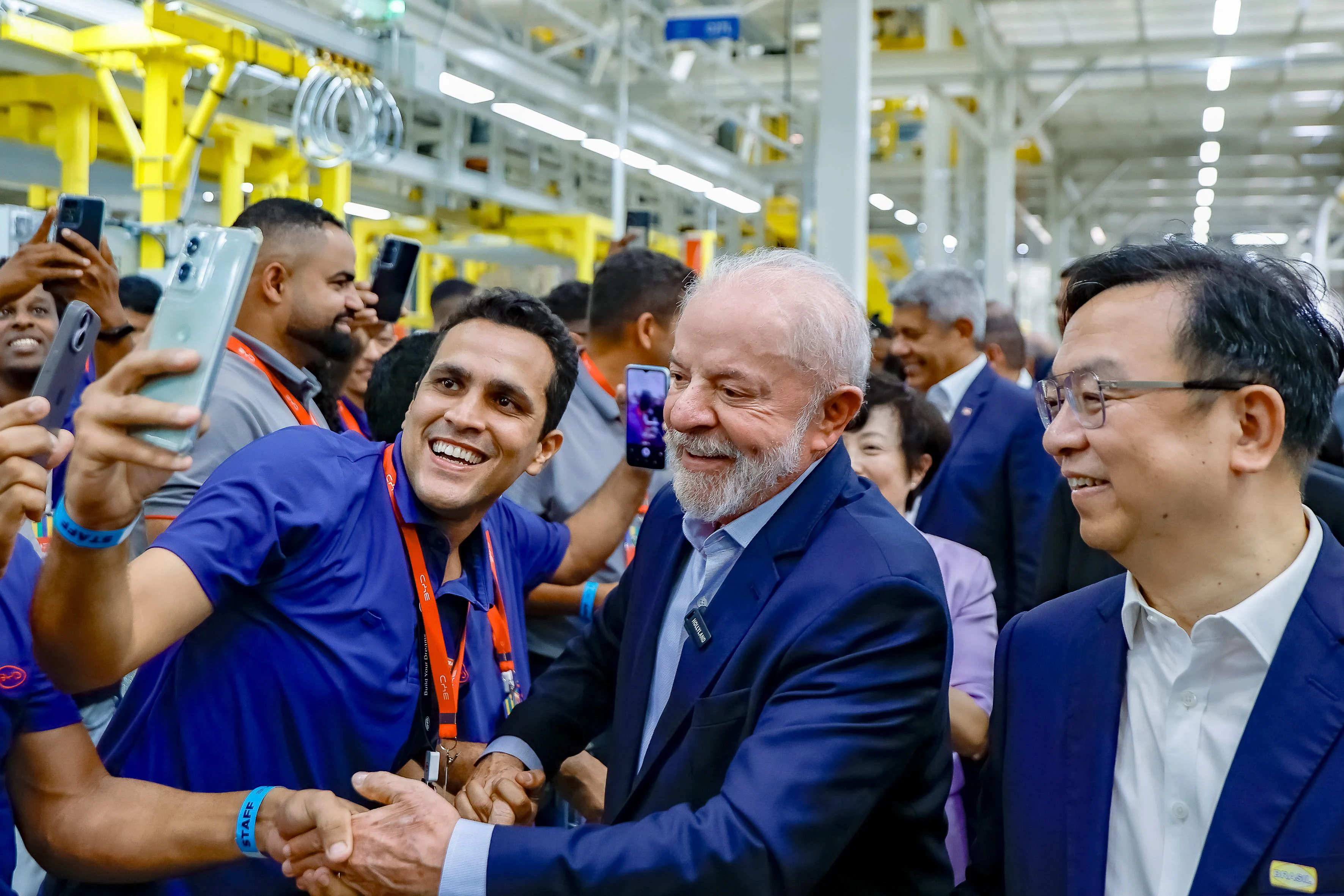By Igor Patrick
Copyright scmp

Chinese carmaker BYD inaugurated what it describes as its largest electric vehicle plant outside Asia on Thursday, highlighting Brazil’s bid to lead South America’s shift towards clean mobility while drawing renewed scrutiny of Beijing’s expanding industrial footprint.
The opening of the vast Camacari complex in Bahia state brought together President Luiz Inacio Lula da Silva, Vice-President Geraldo Alckmin, state and local officials and dozens of industry figures. It coincided with the roll-out of BYD’s 14 millionth new energy vehicle, a symbolic milestone for the world’s biggest EV manufacturer as it deepens its presence in Latin America.
“Green development is an irreversible global trend,” said BYD founder and chairman Wang Chuanfu during the ceremony.
“We are here not just to build cars but to build a future, one that belongs to every Brazilian who chooses cleaner transport.”
The new complex, BYD’s largest facility outside Asia and the biggest electric vehicle factory in Latin America, represents an investment of R$5.5 billion (US$978 million).
Built on the grounds of a former Ford site, it will begin production with a capacity of 150,000 vehicles per year, expanding to 300,000 in a second stage.
The project is expected to generate more than 20,000 direct and indirect jobs once fully operational. Initial output includes the Song Pro plug-in hybrid SUV, the all-electric Dolphin Mini and the King hybrid sedan.
The company also unveiled a limited-edition Song Pro COP30 model powered by what it says is the world’s first plug-in hybrid flex-fuel engine, a technology designed for Brazil’s sugar cane-based ethanol market.
Only 30 units will be built, 29 of which will be donated to the United Nations climate summit COP30 in Belem next month. One will go to Lula as a gift to mark the country’s return to large-scale automotive production.
BYD’s growth in Brazil has been staggering. Since entering the passenger vehicle market in 2022, the company has sold more than 170,000 electrified cars, including fully electric and plug-in hybrid models, and now dominates the electric segment with 74.4 per cent of total sales, according to industry data.
It has also climbed to seventh place in the national car market overall, overtaking legacy brands such as Honda and capturing more than 5.5 per cent of all passenger car sales.
That rapid rise has unsettled competitors and triggered political debate. The National Association of Automotive Vehicle Manufacturers, or Anfavea, which represents major carmakers such as Toyota, Volkswagen and General Motors, has accused BYD and other Chinese brands of dumping, arguing that state support allows them to sell below cost.
The group also opposed BYD’s request for temporary tariff relief on semi-assembled vehicles, warning it could threaten local jobs and weaken Brazil’s industrial base.
After weeks of negotiations, the government granted the company a six-month exemption worth about US$463 million while bringing forward higher import duties for 2027.
BYD has rejected the allegations, noting that its cars are priced significantly higher in Brazil than in China and that it complies fully with Brazilian law.
In a statement, the company said local manufacturing involves “high operational costs that must be recognised” and that a tax differentiation between imported and locally assembled vehicles “is essential to support investment in Brazil”.
Questions over labour conditions have also shadowed the project. A task force from the Labour Prosecutor’s Office last year rescued workers from what officials described as exploitative conditions at the construction site, prompting a temporary halt to work.
BYD said it cooperated fully with authorities and reaffirmed its “unwavering commitment to human and labour rights”.
Despite controversies, the expansion seems in line with the government’s industrial and environmental goals. The Chinese company plans to source 70 per cent of components locally by 2028 and to establish research and testing centres in Brazil.
The project is supported by the federal Mover programme, which rewards carmakers that invest in cleaner and more efficient technologies.
For Brasilia, the plant represents both economic stimulus and political capital. The Camacari facility is expected to revitalise Bahia’s manufacturing base, hit hard by Ford’s departure in 2021, and to reinforce Brazil’s position in the global energy transition.
In his speech, Lula praised the investment, saying it showed that “industrialisation and sustainability can advance together”.
“Since God writes in crooked lines, He needed Ford to leave Brazil and BYD to come,” Lula said.
“And I think it was a good replacement for us, because this is the most important technology in the global automotive industry.”
The Brazilian president pledged to continue strengthening relations with China, describing himself as a “friend of President Xi Jinping”, whom he believes “is a friend of Brazil too”.
He said both are presidents of the Global South who do not accept anyone interfering in their affairs.
“With this factory, we are presenting to the world a nation project. We have no country preference, but we want to establish a civilised relationship with the world,” Lula added.
“This factory will restore the dignity of the people of Camacari and allow them to improve their lives, to walk the streets with their heads held high.”
Wang pledged that BYD would continue to deepen its long-term commitment to Brazil. “We will keep investing here,” he said.
“We want to become a brand that truly belongs to the Brazilian people … [as] the future is electric, and the future belongs to all of us.”